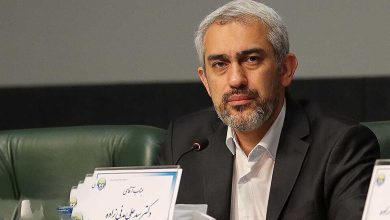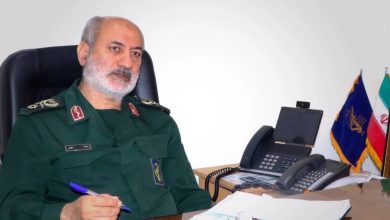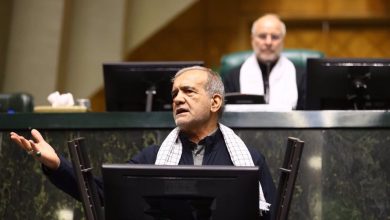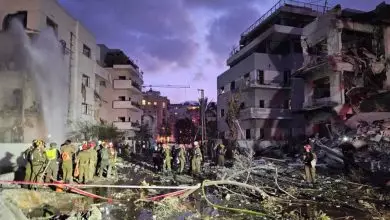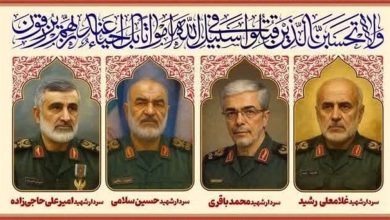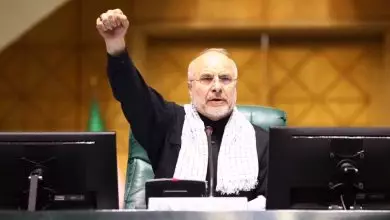IRGC Chief Denounces Trump’s Intense Psychological Maneuvers Against Iran
IRGC Chief Major General Hossein Salami has criticized Trump, asserting that his depiction of Iran's circumstances, as portrayed in a speech in Riyadh on Tuesday, is far removed from reality.
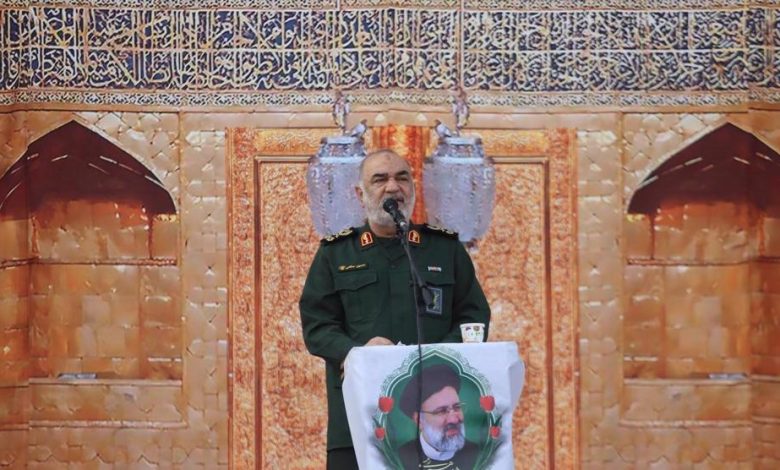
A statement given on Thursday criticized Trump’s remarks made in Saudi Arabia, attributing them either to a misunderstanding and lack of awareness about the Iranian people and their profound reality, or to a strategic psychological maneuver aimed at misleading the Iranian populace.
In a ceremony held in Tehran, General Salami stated that there is a vast disparity between one’s mental perceptions and the actual reality in Iran, comparing the difference to that between the earth and the sky.
In a speech delivered in Riyadh on Tuesday, Trump highlighted the economic disparities between Iran, under the constraints of international sanctions, and Saudi Arabia, which he praised for transforming arid deserts into thriving agricultural lands. He extended an olive branch to Tehran, proposing “a new path, and a much better path,” promising prospects for a brighter and more optimistic future.
General Salami repudiated the comments, asserting that the Iranian nation is well aware of its allies and adversaries, with Trump being central to the hostility against Iran.
He stated that sanctions had been imposed on the Iranian nation with the intent of obstructing access to medicine for patients, asserting that these efforts would ultimately prove unsuccessful.
Gen. Salami questioned Trump’s previous statements, highlighting a shift in tone by asking why a nation once labeled as “terrorists” is now being approached as a friendly entity.
The comments referred to Trump’s statements made on the ITV television network during a state visit to the United Kingdom in June 2019, where he characterized Iran as “a place that was extremely hostile when I first came into office.”
Trump described the country as a leading terrorist nation, labeling it as the foremost in the world during his tenure, and suggested that it might still hold that distinction today.
“The Iranian people regard you as the murderer of their most cherished and esteemed national hero, the martyred Lieutenant General Qassem Soleimani,” stated Salami.
In his remarks, he urged consideration of how the Iranian nation perceives one’s image.
General Salami referenced the “painful memories of America’s oppressive dark domination” embedded in the minds of the Iranian populace.
He referenced the 1953 Central Intelligence Agency coup that ousted the democratically-elected Prime Minister Mohammad Mosaddeq, aiming to bolster the monarchical authority of Mohammad Reza Pahlavi.
In a recent statement, Salami accused foreign powers of exerting undue influence over Iran’s political future during the Pahlavi era, alleging that they exploited the nation’s resources and sought to undermine its cultural and religious values by promoting opposing symbols.
Following the 1979 Islamic Revolution in Iran, he stated, “You have played a role in instigating wars, stirring seditions, imposing sanctions, engaging in psychological warfare, and launching media campaigns aimed at subduing the Iranian nation to align with your political agenda.”
Gen. Salami stated, “You understand neither the Iranian nation, the Islamic establishment, nor the core principles of Islam and Iran.”
The head of the Islamic Revolutionary Guard Corps announced a significant development in defense technology, expressing a desire to share this “huge achievement” with the Iranian public, though details were not disclosed at this time.
In an announcement lacking further specifics, he stated, “We will reveal it in due course, but be aware that the balance of power has shifted and will continue to do so.”


